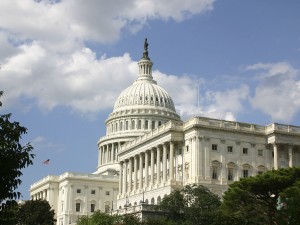 Earlier this week, the U.S. Department of Education (USDE) released a new batch of final regulations for the Every Student Succeeds Act (ESSA)—bipartisan legislation that reauthorized the Elementary and Secondary Education Act (ESEA). These rules cover the law’s accountability, reporting, and state planning provisions of ESSA and come on the heels of an earlier— and highly controversial— set of proposed regulations for the law’s so-called “supplement-not-supplant†provisions.
Earlier this week, the U.S. Department of Education (USDE) released a new batch of final regulations for the Every Student Succeeds Act (ESSA)—bipartisan legislation that reauthorized the Elementary and Secondary Education Act (ESEA). These rules cover the law’s accountability, reporting, and state planning provisions of ESSA and come on the heels of an earlier— and highly controversial— set of proposed regulations for the law’s so-called “supplement-not-supplant†provisions.
While final rules for ESSA’s supplement-not-supplant provisions are still being worked out, this week’s set of final regulations make a number of important changes to the draft version released earlier this summer.
In many respects these final rules stipulate a more realistic timeline for the law’s implementation. For instance, states now have until the 2018-19 academic year to identify the lowest 5 percent of schools— schools that would then be eligible for comprehensive improvement under ESSA— whereas before that requirement would have gone into effect in the 2017-18 school year under the earlier proposal. Similarly, state ESSA plans are now due by April 3 or September 18, 2017 in order to give state education agencies more time to meaningfully engage stakeholders ahead of the law’s accountability system going into effect (another aspect of ESSA that will not be fully implemented until the 2018-19 school year).
Of particular note for the CTE community are other rule changes governing the law’s accountability system, specifically the new ESSA requirement that state accountability systems include at least one non-academic measure of school quality or student success which, under ESSA, may include measures of career readiness. Under the earlier draft version these additional indicators would have needed to be supported by research finding that “performance or progress†on the measure increases student academic achievement or graduation rates. Advance CTE, along with the Association for Career and Technical Education (ACTE) urged USDE to broaden this standard slightly to ensure that a greater number of high-quality career readiness indicators could be incorporated into states’ new ESSA accountability systems.
Encouragingly USDE heeded this suggestion and the final rule now requires that such measures, “increase student learning, such as grade point average, credit accumulation, or performance in advanced coursework, or for high schools, graduation rates, postsecondary enrollment, persistence, or completion, or career success.†A summary of these final rules are available here and the full document can be found here.
On Capitol Hill, the new ESSA regulations were met with mixed reactions. Referencing the powers at his disposal via the Congressional Review Act—a law that would allow the Republican controlled Congress next year to throw out the proposal entirely— Chairman Lamar Alexander (R-TN) said he, “will carefully review this final version before deciding what action is appropriate.†Ranking Members of the Senate and House Education Committees, Patty Murray (D-WA) and Bobby Scott (D-VA) issued a more supportive statement saying, in part, “While we are disappointed that this final rule doesn’t go as far as we would have hoped, we commend the Department of Education for listening to stakeholders . . . This rule will provide states and school districts with much needed stability and clarity as they work to submit state plans and implement statewide accountability systems.â€
In other ESSA-related news, USDE recently released new non-regulatory guidance for states and local districts to support the law’s ongoing roll-out. These releases covered topics ranging from meeting the law’s new English Language Learner requirements under Title III, guidance for how to effectively use ESSA Title II funding to support teachers and high-quality instruction, and additional guidance aimed at helping states and districts provide a “well-rounded education†under Title IV of the new law.
Be sure to check back here next week for another update on states’ efforts to implement ESSA.
Steve Voytek, Government Relations Manager

